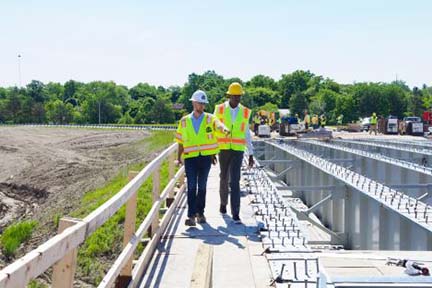
Coalition Urging FDA to Address Unregulated Nicotine Products

Media contact: FOR IMMEDIATE RELEASE: AG Nessel Joins Bipartisan Coalition Urging FDA to Address Unregulated Nicotine ProductsLANSING – Attorney General Dana Nessel joined a bipartisan coalition of 31 attorneys general, led by Illinois Attorney General Kwame Raoul, Idaho Attorney General Lawrence Wasden, Nebraska Attorney General Doug Peterson and Pennsylvania Attorney General Josh Shapiro, in urging the U.S. Food and Drug Administration (FDA) to reject marketing authorization for all non-tobacco nicotine products, which are currently being sold without regulatory constraints on their contents, manufacturing, health effects or marketing claims. Should the FDA grant marketing authorization to such products, Nessel and the coalition insist the FDA must impose the same restrictions required of tobacco-derived nicotine products. To create nicotine products derived from substances other than tobacco, manufacturers have turned to chemicals with potential health impacts that are less understood than their tobacco-derived nicotine counterparts. Yet these non-tobacco nicotine products have not faced the restrictions on sales and marketing that the FDA requires for tobacco products. As a result, these products are being sold in a variety of fruit and other flavors and have become increasingly popular with youth. A new law signed in March by President Joe Biden gives the FDA jurisdiction to regulate these products and requires that manufacturers now seek FDA approval to sell them. “The fact that the nicotine in these products does not come from tobacco does not make them any less harmful,” Nessel said. “I have sounded the alarm previously that marketing nicotine products to youth is a practice that should be restricted, so I am proud to stand with my fellow attorneys general in calling on the FDA to impose regulations on the manufacturers of these products that are targeting and harming our youth.” In the letter, Nessel and the coalition argue that these products currently fail to satisfy the FDA’s public health standard, and that public health should not be gambled on the unknown effects. If the FDA grants marketing authorization to non-tobacco nicotine products, despite the health risks to consumers and especially to youth, Nessel and the coalition maintain that the FDA must impose the same restrictions required of tobacco-derived nicotine products. This would include a ban on all products that include a flavor other than tobacco and strict regulatory requirements regarding their contents, manufacturing, and effect on users’ health. Products should carry warnings concerning their addictiveness, and manufacturers should be required to validate health claims made about their products, such as claiming that a product is safer than tobacco. The lack of regulation on non-tobacco nicotine has created an unlevel playing field, as this one category of products has evaded regulatory burdens and restrictions, while its competitors undertake the expense and effort required to conform to FDA requirements. Non-tobacco nicotine products have also skirted the tobacco bans of some major online retailers and are available for purchase online from sellers that do not sell tobacco. These regulatory disparities create incentives for more manufacturers to switch to non-tobacco nicotine products, expanding the problem. Nessel and the coalition argue that there is no justification for regulating non-tobacco nicotine any differently than tobacco-derived nicotine. If anything, synthetic nicotine’s obscure origins, unexplored chemical characteristics, and use in flavored products that appeal to youth, call for heightened vigilance. Joining Nessel and the lead attorneys general in sending the letter are the attorneys general of Alaska, California, Colorado, Delaware, District of Columbia, Guam, Hawaii, Maine, Maryland, Massachusetts, Minnesota, Nevada, New Hampshire, New Jersey, New Mexico, New York, North Carolina, Northern Mariana Islands, Oregon, Puerto Rico, Rhode Island, South Dakota, Vermont, Washington, Wisconsin and Wyoming. |











